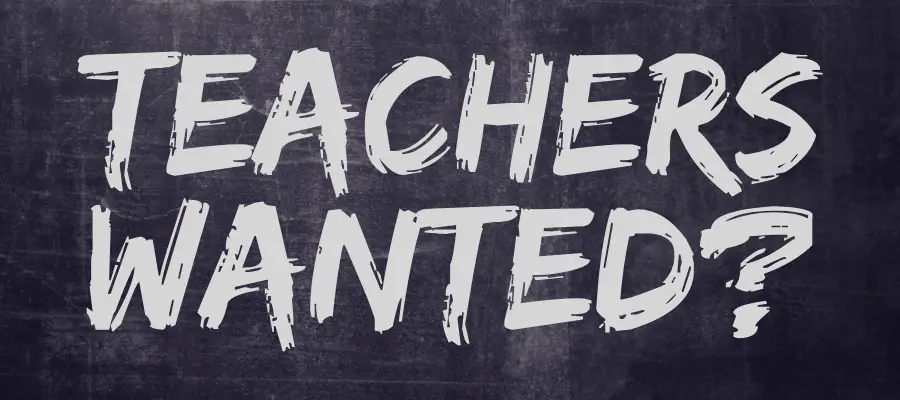Neglecting New Educators Neglects the Future
In many ways, academia is shooting itself in the foot. Neglecting new educators neglects the future. It’s that simple. Frankly, it is alarming how many highly educated professionals (with real-world experience) are denied an opportunity to teach in higher education due to a lack of classroom experience. However, it does not appear as though many in academia have really thought this through.
The demand for fresh perspectives and innovative teaching approaches has never been more pronounced than it is right now. However, an alarming paradox plagues academia – while the need for new educators is escalating, many colleges rigidly mandate a minimum of one year (or more) of teaching experience for hiring. The problem is that new educators are not getting hired to gain this experience.
This Catch-22 situation becomes a stumbling block for aspiring educators, as they find themselves trapped in a perplexing loop: unable to secure a position without experience and unable to gain experience without a position. This nonsense has to stop. Hence, I propose a straightforward solution to break the cycle and rejuvenate the educational system.
The Need
The educational landscape is evolving rapidly. Several needs become apparent when you consider technological advancements, diverse student demographics, and a growing awareness of the need for more andragogical practices. This evolution necessitates a continuous infusion of fresh talent into academia – educators who bring novel perspectives, enthusiasm, and a willingness to adapt to the changing needs of students. The demand for educators who can navigate this complex terrain is no longer just a desire; it is an imperative for fostering an environment that prepares students for future challenges.
The Problem
Despite the urgent demand for new educators and the numerous openings throughout the country, the current hiring practices in many academic institutions present a formidable barrier for those wishing to join the ranks of higher learning. Requiring a minimum of one year of teaching experience poses a substantial obstacle for those entering the field.
This prerequisite discourages potential educators and perpetuates a system that favors the “clique” environment. By excluding new voices, academia risks becoming stagnant, failing to meet the diverse needs of modern students, and falling behind in the global educational landscape. That has already begun in many ways, reflected in the startling decline of college enrollment and the mass exodus of qualified educators. Well, you reap what you sow.
The Irony
Irony can be pretty ironic sometimes. The irony of this predicament is glaring – they have to start somewhere! New educators are caught in a paradoxical web where classroom experience is a prerequisite for employment, yet employment is also the gateway to gaining classroom experience. Of all industries, one would think that academia would be smart enough to identify and rectify this nonsensical barrier.
This nonsensical cycle not only hampers aspiring educators’ professional growth but also stifles the evolution of teaching methodologies and the advancement of various sciences. The system denies itself the injection of vitality that new educators bring, leaving students with a stagnant and often diluted educational experience that lacks the vigor necessary for intellectual and societal progress. If we are honest with ourselves, we can simply look around and see the truth of this statement.
The Simple Solution
Breaking free from this cycle requires a fundamental shift in the approach to education and teacher preparation. The simple solution lies in acknowledging that experience can be gained through deliberate training initiatives. Academic institutions must take the initiative to train and mentor new educators, providing them with the tools, knowledge, and skills necessary to thrive in the classroom.
At the very least, academic institutions should create programs that open doors for those seeking the experience. This could be accomplished in various ways, including through adjunct or probationary programs. This proactive approach not only addresses the current paradox but also ensures that educators are well-equipped to meet the demands of contemporary education while having the opportunity to prove themselves in that setting.
Seriously!! Stop the Madness!
If we want educational excellence, academia must confront the barriers it voluntarily imposes on itself and new educators. Embracing change and prioritizing training over arbitrary experience requirements will benefit aspiring educators and invigorate the entire educational system. The future of education depends on the ability of academia to recognize the untapped potential in new educators and provide them with the opportunities they need to flourish. Or, it can continue to go down the road it is currently on and just live with the predictable outcome.
If you enjoyed this article, you might also enjoy Do Instructional Design Methods Result In Rigidity?




